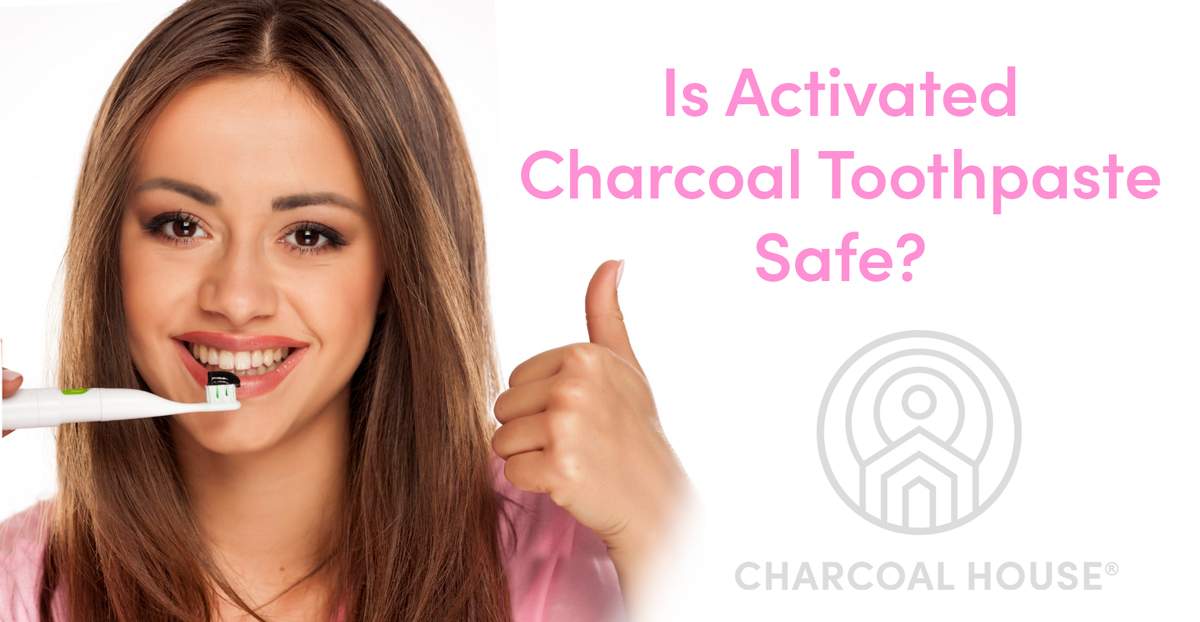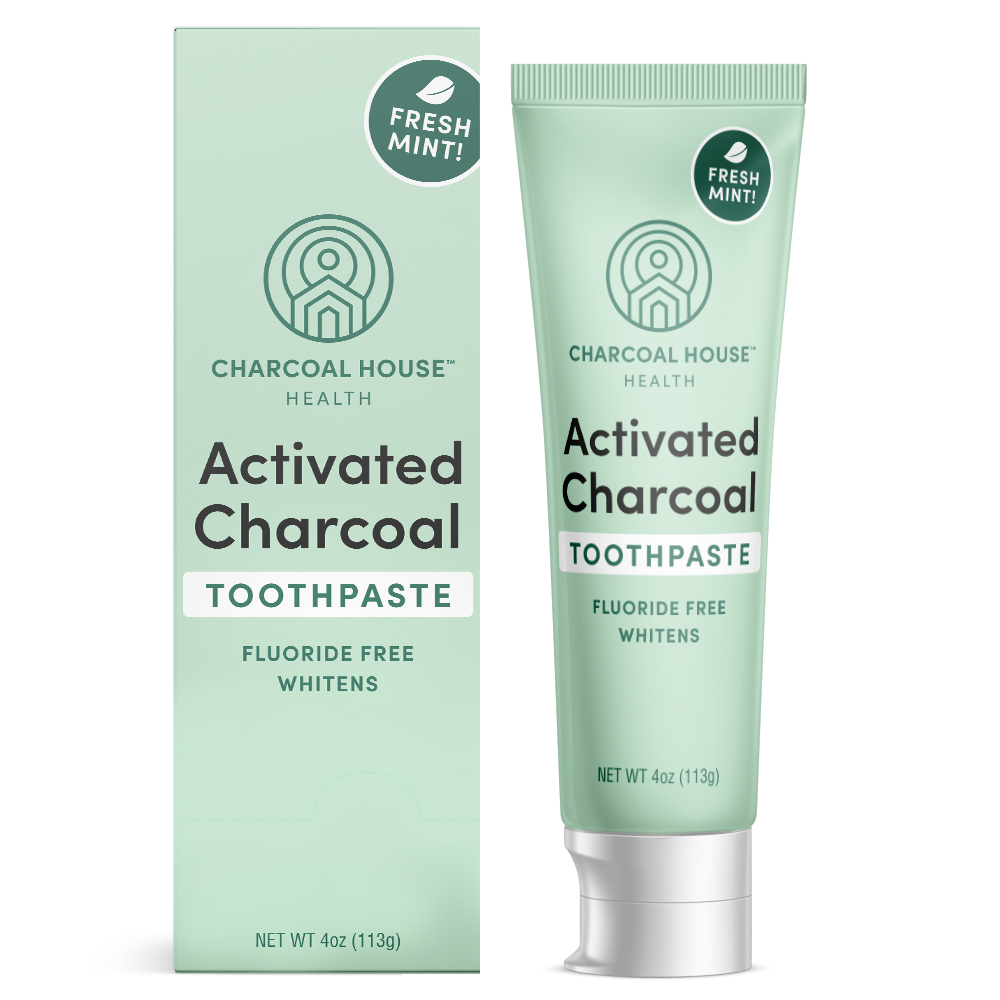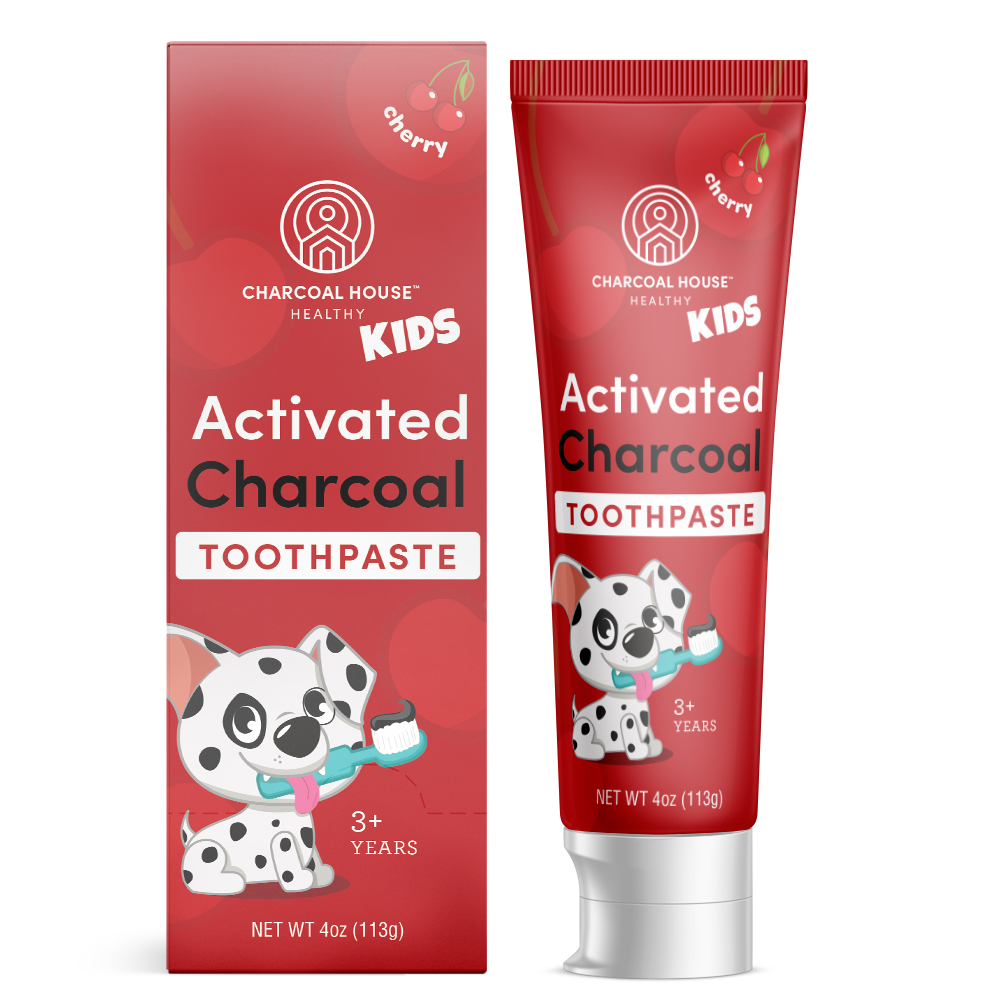Can Charcoal Toothpaste Wear Away Enamel?
It’s time to clear away the smoke from dental “experts” on the efficacy of charcoal in toothpaste.
With all due respect to dentists and dental techs, there is a good deal of ‘professional’ misinformation along with all the false hype over the surge in charcoal enthusiasm.
In this article we address two major concerns which are being debated around the world in Men’s Health Magazine and HuffPost. Those questions being, “Can the Charcoal wear away tooth enamel?” and Is Charcoal Toothpaste Safe?
Activated Charcoal Basic Background
Yes, charcoal is classed as the ‘Universal’ antidote for poisoning, yes, it is a commercial/industrial cleaner of thousands of manmade chemicals and food products, yes charcoal binds hundreds of microbial toxins, and is an integral component of dialysis machines, however charcoal does have limitations. Fortunately improving dental hygiene is not one of those limitations. This letter is in response to an article written for the online HuffPost, Is Charcoal Toothpaste Safe? Dentists Explain the Risks, which represents much of the pushback against charcoal in general by mainstream Health practitioners.
An Activated Charcoal Expert’s Opinion and History of Use
First, I would like to qualify our biased position. We have been in the charcoal business for the past 15 years after I wrote the best seller CharcoalRemedies.com The Complete Handbook of Medicinal Charcoal.
Since writing that book we started the online business Charcoal House which carries the most diverse line of Activated Charcoal [AC] products in the world [and out of this world]. We deal in over fifty different grades of AC used in thousands of unique applications. Likewise, we supply charcoal to Pharmaceuticals and Nutraceuticals to ‘polish’ their end products for human and animal consumption.
Also, we sell AC for the refining of high-end vegetable oils and table wines. We supply military grade AC cloth for Nuclear Biological Chemical warfare clothing and HAZMAT suits. We supply charcoal for air purification used in nuclear submarines, the ISS, and for the first manned flight to Mars. And we supply AC to international Health and Beauty companies for soaps, cosmetics, creams, supplements, shampoos… and tooth powders and toothpastes.
We work with dozens of product developers and R&D teams, and we have learned a lot about AC and its applications that we had no idea of 15 years ago. Adding to our business exposure, we travel internationally giving public health programs on the amazing applications and benefits of AC to the rich and educated, as well as to the poor and illiterate. We have presented to industry leaders as well as to healthcare workers around the world: pharmacists, surgeons, nursing schools, as well as dentists. So we come to this discussion with a bit more information and experience than the average layman or professional.
Evidence for and against Activated Charcoal
Second, I would like to agree with one quote made at the beginning of the article.
“Activated charcoal can have many health benefits due to its ability to remove harmful toxins from the body,” and [concerning toothpastes] ‘you should make sure the powder is extra fine”
Dr. Nicole Khalife, a New York-based dentist.
Then the article moves into false negatives. Dr. Timothy Chase, cosmetic dentist claimed,
“There has not been a single study done that shows that using charcoal products for oral health care does anything good for your teeth at all,”
Dr. Timothy Chase, cosmetic dentist
Really??
But if that were true, as was repeated in the article more than once, then how can they say emphatically that charcoal is harmful? They can’t. If there is NO study that says charcoal is harmful then neither can they. They need to remain silent until they have some proof.
Historical Use Of Activated Charcoal In The Dental Industry
On the other hand, is there proof that charcoal is an aid to dental hygiene? Yes. Historically, charcoal as a simple dentifrice has been used for thousands of years and is referred to in different indigenous groups for its whitening qualities. Does AC have bleaching properties? Absolutely, in fact that was one of its first modern uses [1890s], to remove pigments from cane syrup to make white table sugar. Today it is used to turn common red wine into fine white table wine, turn dirty rancid [cold pressed] olive juice into delightful golden amber oil, and noxious smelling dirty looking drugs into nice clean white tablets. AC’s color and pigment removal properties are indispensable to the Food, Pharmaceutical, and Nutraceutical Industries.
Before I stray too far, notice these textbook entries:
- King’s American Dispensatory [1898] “It [charcoal] occasionally enters into tooth-powders, and may be used with advantage to correct the fetor of the mouth, and cleanse the teeth.”
- The Physiomedical Dispensatory [1869] “Charcoal tooth powders may contain from 25 to 75 percent of wood charcoal.”
- The Eclectic Materia Medica, [1992] “It is frequently added to poultices and is an ingredient of some tooth powders.”
- “Powdered charcoal easily removes stains and makes the teeth white, though it occasionally works under the gums.” Three Square Meals [circa 1880]
- British Dental Journal [1946] reported this article: “Charcoal controls caries; an account of a survey of the incidence of dental caries in southern India”
- One more recent article [2017] identified 118 clinical studies that reported on the pros and cons of charcoal as a dentifrice. Of the thirteen studies that reported brushing teeth with charcoal or soot*, only three reported negative outcomes.
- In a January 2019 experiment reported in the Journal of Applied Oral Science using different products claiming whitening properties, the study did not show any immediate whitening benefits after the first use of activated charcoal but did demonstrate positive whitening after four weeks.
- On an aside, a 2018 study [Contemporary Clinical Dentistry] showed charcoal toothbrushes had significantly less bacterial counts than non-charcoal toothbrushes. Hmmm. Certain bacteria do have enamel destroying capability. Charcoal cuts that risk in half.
Rock Hard Physical Science: Activated Charcoal Safe For Enamel?
So what about the hard core science concerning enamel loss in the face of NO clinical evidence? Well the most obvious question is how abrasive is AC compared to the other ingredients common to national brand toothpastes?
Relative Dentin Abrasivity (RDA) is a guide to measure abrasiveness for all FDA approved dental products. The FDA states all toothpastes with an RDA of 250 or less, are “Considered safe and effective.” In fact, clinical evidence supports that lifetime use of proper brushing technique with a toothbrush and toothpaste at an RDA of 250 or less produces limited wear to dentin and virtually no wear to enamel.
The RDA testing method and the upper limit of 250 has been adopted by the American National Standards Institute/American Dental Association (ANSI/ADA) and is included in the manufacturing standards outlined in ANSI/ADA Standard No. 130:2013 on toothpastes. All dentifrices with the American Dental Association [ADA] Seal of Acceptance must have an RDA of 250 or less.
All ADA-approved national name brand whitening toothpastes score between 100 to 200 RDA
So what about activated charcoal powder?
Activated charcoal powder scores about 70 to 90 on the RDA scale.
To make this abundantly clear, and to sweep away all the false negative claims by so-called experts, charcoal is rated by the FDA to have a significantly LOWER Relative Dentin Abrasivity than ADA-approved national name brand whitening toothpastes with RDAs of 100 to 200.
What we can conclude: Charcoal toothpastes are LESS abrasive than non-charcoal toothpastes!
So, when choosing a toothpaste for abrasiveness don’t forget to check the national brands against the AC brands.
Activated Charcoal Hardness and Particle Size
Remember most toothpastes contain silica [as in sand/sandpaper] which has a hardness of 7, while charcoal has a hardness of 1-2. While something with a higher hardness can scratch something with a lower hardness, the opposite is not true. So, silica [7] can scratch tooth enamel [5], but charcoal [1-2] cannot scratch tooth enamel [5].
Therefore, this explains why there is NO scientific proof that “conclusively” demonstrates that charcoal is abrasive to teeth. Simply put, charcoal cannot scratch dental enamel, because dental enamel is harder than charcoal.
Furthermore, this also explains, no doubt, why all the national name brand toothpastes have also jumped on the charcoal toothpaste bandwagon. We can be sure they have all done their own testing and know abrasion from charcoal is not a concern.
Conclusion
According to the ADA, charcoal [with an RDA of 70-90] produces “limited wear to dentin and virtually no wear to enamel”. In fact, the HuffPost article and all the subsequent cloned articles are not only misleading, they are categorically false. Regular use of charcoal toothpaste does NOT prematurely wear away tooth enamel, neither in adults nor in children. Therefore Charcoal Toothpastes in general, relative to RDA guidelines as stated by the FDA, are “Considered SAFE and EFFECTIVE”!
*To be clear, some old tooth remedies used soot. I cannot speak to its teeth whitening properties, but soot is definitely an unhealthy product to ingest. Warning, soot is NOT charcoal, and should not be put in the mouth since it is proven to be a carcinogen.
-John Dinsley 2020











